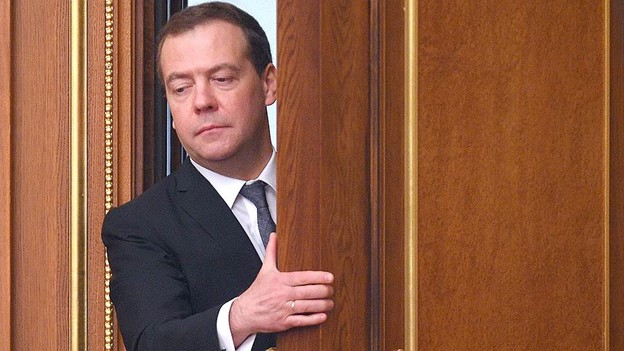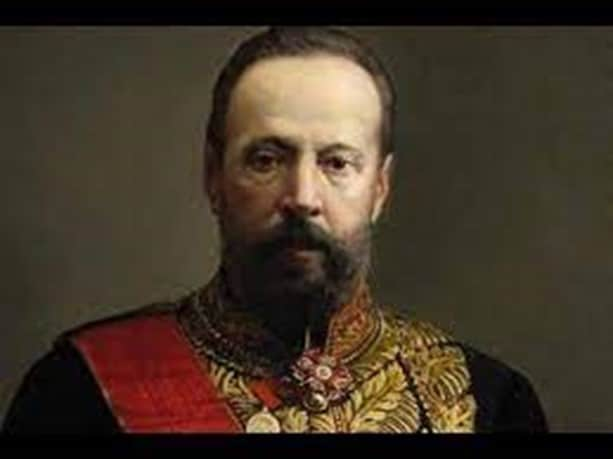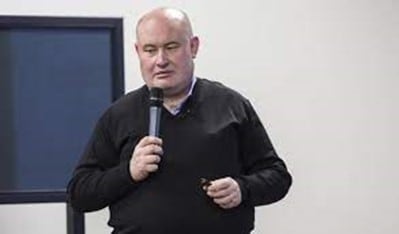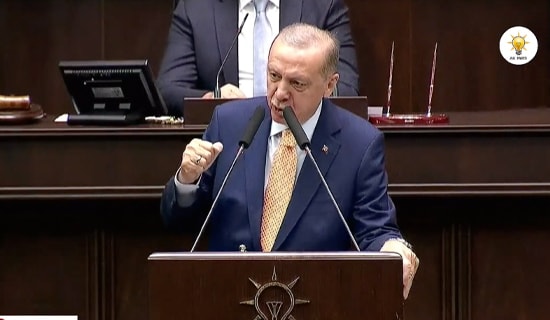Russian Political Scientist Aleksey Makarkin in an interview with Mk.ru, reacted to former President Dmitry Medvedev's characterization of Western leaders as bastards and degenerates. During his presidency Medvedev was the good cop in relations with the West in contrast with the bad cop Vladimir Putin, and he was also the great hope of Russian liberals, who believed that he would be a force for reform of the system. The 'soft' Medvedev according to the arch-conservative Tsargrad was hardening his positions and his rhetoric because only two years remained to the 2024 presidential elections and Medvedev was preparing to enter the competition.[1] Makarkin discounted Medvedev's chances as his views remain suspect among conservatives, and he has now alienated liberals. Moreover, by his radical change of position, Medvedev has overdone it and lost credibility. However by being a team player on Ukraine, Medvedev has assured his survival as a member of the top elite.
The interview with Makarkin follows below:[2]

Dmitry Medvedev (Source: Kommersant.ru)
"'I hate them. They are bastards and degenerates...' Dmitry Medvedev's speeches in social networks are becoming increasingly implacable towards the West and the 'fifth column' within the country. And ever more, shall we say, emotionally charged. The noted liberal and 'dove' before our eyes has turned into a reactionary 'hawk'. And the last, quoted post astounded, perhaps, even the 'hawkish' camp. Alexei Makarkin, First Vice President of the Center for Political Technologies, reflects on the reasons for the metamorphosis in an interview with MK.
Alexey Vladimirovich, a fairly popular and common explanation for Medvedev's increasingly frequent and increasingly incendiary posts is that he earns points in an effort to return to the status of a successor [to Putin]. Is he working, shall we say with this perspective in mind. Does this make sense?
- I'm not sure that it is worth focusing now on the succession issue. Now immediate problems are being solved. Including – frankly Medvedev's tasks. Moreover, as far as succession is concerned, his latest publication is counterproductive from this point of view. The duties of the president are inter alia connected, with the fact that he has to communicate with Western leaders.
How long has the current Russian president spoken to Macron? According to Macron, about 100 hours. And this communication will continue. Imagine: Medvedev becomes president, and he will have to communicate with those whom he dumped on. But how do you communicate after that? How to build relationships? No, I don't think it's a matter of succession.
- Then what?
- I think that everything is a lot simpler. It is about the role and place in the team. And in general about belonging to the team. Medvedev has a reputation as a Westerner, which was established during his presidency. And he actually did quite a lot to establish this. One can recall his personal relationship with Obama, and the reset, and statements about freedom... And when he left the presidency, he also did not immediately turn into a conservative. There was, for example, if you remember, such a project as "Open Government".
But what was once a competitive advantage looks completely different now. In the conditions of a special military operation, in the conditions of a break with the West, such a past, such a background, poses a rather serious problem. Medvedev invested too much in his time in modernization, in Westernization. And now his task is not succession. The task is to stay around in the elite. I would even say - in the super elite: after all, he is the deputy chairman of the Security Council.
The rest of the presidential team doesn't have to prove anything, they don't have to repudiate anything. They have been criticizing the West for a long time, they have long spoken out for [Russia's] own way of development. Medvedev, in order to be a natural part of the team, must in some sense make up for lost time. Which is what he is doing now. Shows that he is the same as everyone, that what was connected with Obama, with the reset, is a distant past. That he burned all the bridges.
- Does he act like this, faced with a real danger of being expelled from the super-elite, or, as they say, just in case?
SUPPORT OUR WORK

- Just in case, I think. But if Medvedev had behaved the way he used to, as it corresponded to his image, the danger would probably really exist. We often make light of Medvedev, and this only further intensified following his last statement. But he was still president for four years and prime minister for almost eight. This person, no matter how you treat him, has hard experience aplenty. He understands the rules of the game. And he understands that now everyone needs to be consolidated, everyone needs to be on one team, everyone needs to be critics of the West.
- That is, from the point of view of team logic, it turns out that he does everything correctly?
- I would say this: the direction that he has currently defined, the direction of emphasized patriotism, is quite correct from the point of view of team logic. But there is a direction, and there are methods. Medvedev is clearly overdoing it. When the image changes so abruptly, it always arouses dissonance.
Those people who once sympathized with him, he definitively pushed away. As for the representatives of the other camp, those who treated him with suspicion, they, of course, do not take all this seriously. The image change is too abrupt, too demonstrative.
But on the other hand, it is a demonstration of fidelity, a demonstration of loyalty. If the task is to remain in the super-elite, to remain a member of the team, then I think it has been resolved. He will remain with them.
- And yet, if we leave aside the personal experiences of Dmitry Anatolyevich [Medvedev] and the current political moment and try, so to speak, to look beyond the horizon: does Medvedev have a chance to inherit the presidential chair?
- Well, we still do not have a monarchy. A president cannot simply point a finger at a person and say: tomorrow he will be president. According to all polls, people want the head of state, as before, to be popularly elected. This has taken root over 30 years. In other words, the issue is not only a hardware one, but is also of a public and political character. Any successor must go to the polls.
It is clear that if the elections were held today, then people would vote for the government - no matter who represents it. Now, as always happens in Russia in emergency situations, there is a consolidation around the flag, pro-government mobilization. But the emergency cannot last forever. In time, it will go away. Speaking of the future, I have difficulty imagining Medvedev as a presidential candidate.
Everyone will start remembering. For some, he is the prime minister, who is associated with raising the retirement age. For others, he will forever be the president who met with Obama and announced the reset. The Russian anti-Western does not forget anything. For those people who treat the West the way Medvedev does now, he will always be a suspicious figure. Still others will remember these, his last statements: how will he represent Russia in relations with the West after them?
That is, to put it mildly, not the sweetest option?
- I would even say that of all the candidates for successors who are named by our political consultants, and there are quite a few names, in my opinion, this is the least satisfactory option. There will be a wide variety of complaints from a variety of sides. Everyone will charge Medvedev with something of their own.
- Medvedev's statements bring to mind the famous foreign policy 'feints' of Nikita Khrushchev: 'We will bury you!', 'We will show you Kuzka's mother!' [We will show you what's what] banging his removed shoes at the UN ... And, by the way, the politician was not the most popular either.
- People were dissatisfied with Khrushchev for many reasons. First of all, of course, for socio- economic reasons. But his rhetoric did not really enhance his popularity. There is a widespread point of view that a politician should be close to the masses, speak their language. The same Khrushchev emphasized in every possible way that he worked as a mechanic. But this caused an ambivalent reaction in people. And then, over time, a more negative one. Like, since you are a locksmith, why did you climb in with the bosses? Go work as a locksmith!
- At least, Nikita Sergeevich, unlike Dmitry Anatolyevich, did not fall out of character.
- Yes, Khrushchev's accentuated demonstration of his insufficient education, of being common folk was immeasurably more in line with Khrushchev's character than the way Medvedev is now behaving, and in character with Medvedev. Medvedev is a man from an educated, intelligent milieu. And when he tries to address other audiences, it looks, shall we say, not quite natural.
But I repeat: even Khrushchev's image was imperfect. People did not want to see the leader of the person who behaved with them in such a familiar fashion. Not only some cultural figures, artists from the Manezh [Gallery], were offended by his statements, but also the same mechanics. Therefore, when [Leonid] Brezhnev arrived, as a more solid, respectable, and balanced [leader], he was received very well in contrast. For quite a long time, until the mid-1970s, Brezhnev was very popular.
Communication style is a very important thing for a politician. I will give a historical example from over a hundred years ago. Sergei Yulievich Witte was one of the smartest officials in the Russian Empire. He was, perhaps, the first official who tried to introduce elements of public policy into the Russian monarchy.
In 1905, as chairman of the Council of Ministers, Witte wrote an appeal to the workers - so that they would not rebel, but would constructively cooperate with the authorities. Prior to that, he visited America, where he negotiated peace with Japan. There he shook hands with a train driver, gave interviews ... In general, he charmed the Americans.
After that, Witte decided to charm the Russian workers. But he got 'cut off' on the first phrase. He began: 'Brothers workers...' The St. Petersburg Soviet of Workers' Deputies, in which the young Leon Trotsky played a key role, declared in its official reply: 'The proletarians are in no way related to Count Witte.' Regardless of how one relates to Trotsky, the reply, it must be conceded, was brilliant.

Count Witte (Source: Iton.tv)
That is, intonation is very important in politics. No need to flirt with the electorate or with the target audience. You need to have your own style and not get carried away. And look like a solid person who can solve really serious problems.

Aleksey Makarkin (Source: Yeltsin.ru)




